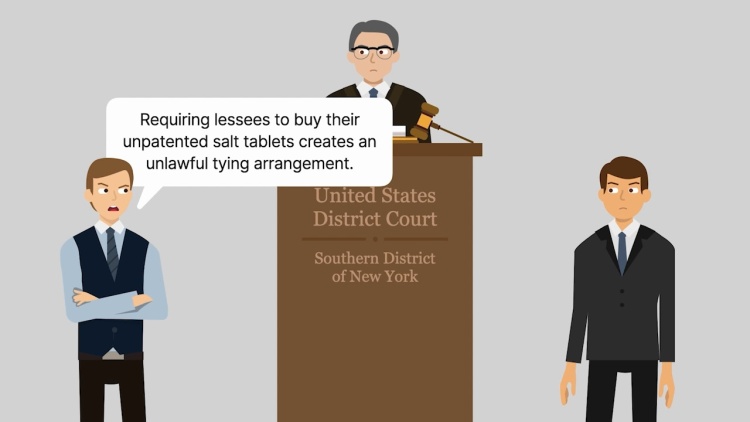International Salt Company v. United States
United States Supreme Court
332 U.S. 392 (1947)
- Written by Tom Syverson, JD
Facts
International Salt Company (International Salt) (defendant) sold industrial-grade salt. International Salt also leased patented machinery for industrial salt processing. The machine leases forced the lessees to purchase unpatented salt tablets for the machines from International Salt. Some of the leases contained a provision that required International Salt to either match the lowest market price or else allow the lessee to buy the salt tablets elsewhere. The United States (plaintiff) sued International Salt, alleging the lease agreements were unlawful tying arrangements in violation of § 1 of the Sherman Act and § 3 of the Clayton Act. International Salt argued the leases did not create a monopoly, because some lessees could buy in the open market if International Salt did not match market prices. International Salt also argued the salt-buying restriction was necessary to ensure only high-quality salt was being used in the leased machines. The district court entered summary judgment in favor of the United States. International Salt appealed directly to the United States Supreme Court.
Rule of Law
Issue
Holding and Reasoning (Jackson, J.)
What to do next…
Here's why 907,000 law students have relied on our case briefs:
- Written by law professors and practitioners, not other law students. 47,100 briefs, keyed to 996 casebooks. Top-notch customer support.
- The right amount of information, includes the facts, issues, rule of law, holding and reasoning, and any concurrences and dissents.
- Access in your classes, works on your mobile and tablet. Massive library of related video lessons and high quality multiple-choice questions.
- Easy to use, uniform format for every case brief. Written in plain English, not in legalese. Our briefs summarize and simplify; they don’t just repeat the court’s language.





